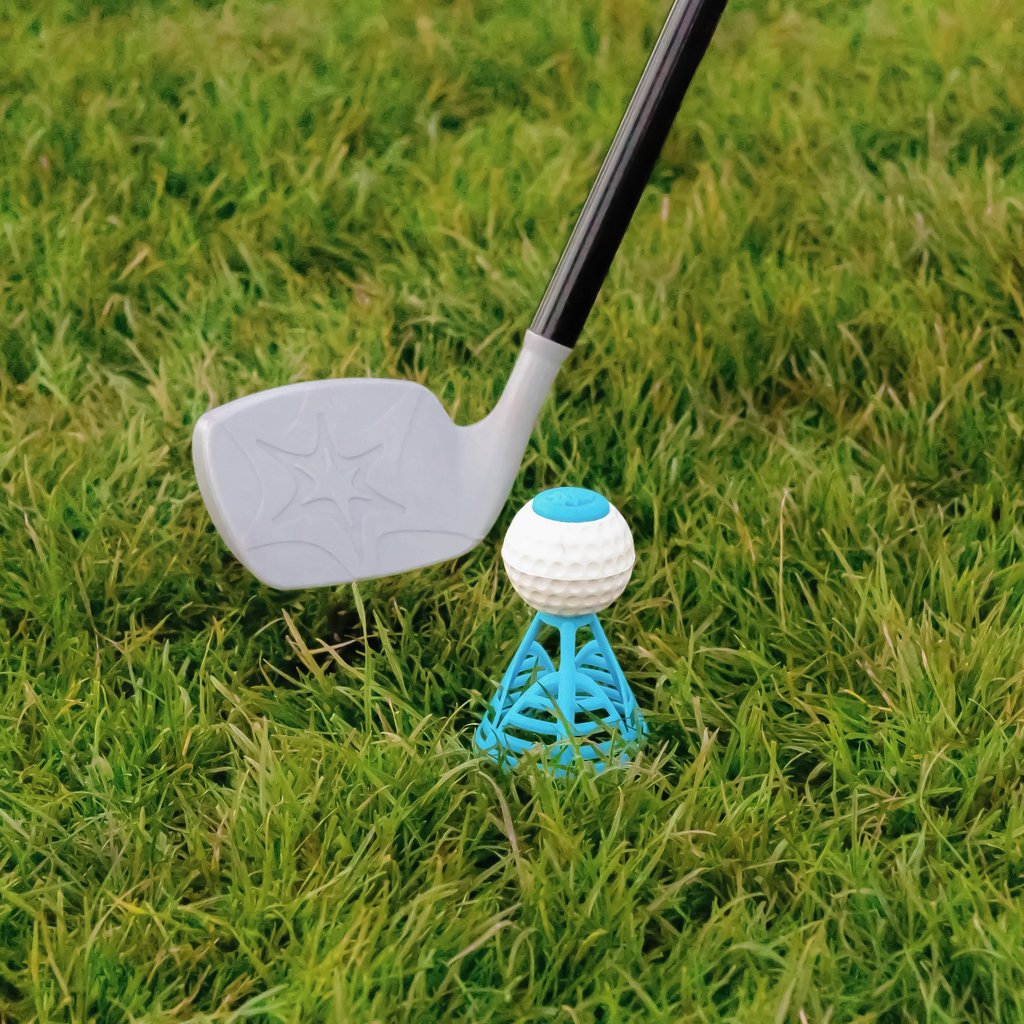Birdie golf is a coveted achievement for golfers of all levels, representing a score of one-under-par on a hole. This remarkable feat not only showcases your skill and precision but also significantly contributes to lowering your overall score. Whether you’re a beginner striving to break your handicap or an experienced golfer aiming for consistency, understanding how to master birdie golf is essential. This detailed guide explores various strategies, techniques, and tips to help you consistently score birdies and elevate your game to new heights.
 The Foundation of Excellence
The Foundation of Excellence
Before delving into advanced strategies, it’s crucial to comprehend the fundamentals of birdie golf. A birdie occurs when you complete a hole in one stroke fewer than its par. For instance, sinking the ball in three strokes on a par-4 hole results in a birdie. Achieving birdies consistently requires a combination of technical skill, strategic planning, and mental fortitude.
What Exactly is Birdie Golf?
Birdie golf is more than just scoring below par; it embodies the pursuit of excellence and precision in your game. Each birdie signifies a well-executed shot, from driving off the tee to sinking the putt. Understanding the nuances of birdie golf helps you focus on improving specific aspects of your game, ultimately leading to better performance and lower scores.
The Significance of Birdie Golf in Your Overall Game
Focusing on birdie golf can dramatically enhance your overall golfing experience. Birdies not only improve your score but also boost your confidence and competitive edge. By consistently aiming for birdies, you develop a proactive mindset that encourages aggressive play and strategic decision-making, both of which are vital for success on the course.
Key Strategies to Achieve
Achieving birdies consistently involves a blend of technical skills, strategic planning, and mental preparation. Here are some key strategies to incorporate into your game to enhance your chances of scoring birdies.
Perfecting Your Driving Accuracy
Driving accuracy sets the foundation for successful approach shots. A well-placed drive can position you closer to the green, making your subsequent shots easier and more manageable.
- Stance and Alignment: Ensure your stance is balanced and your body is aligned correctly with the target. Proper alignment helps in maintaining a straight and powerful drive.
- Swing Technique: Focus on a smooth and controlled swing. Avoid overly aggressive swings that can lead to mishits and reduced accuracy.
- Club Selection: Choose the right driver based on your skill level and course conditions. A driver that offers a balance of distance and control can significantly impact your accuracy.
Enhancing Your Approach Shots
Approach shots are critical in birdie golf, as they position you within scoring range of the green. Improving your approach game can greatly increase your birdie opportunities.
- Distance Control: Practice different clubs to develop a better sense of distance control. Knowing how far each club can take you allows for more accurate shot selection.
- Trajectory Management: Adjust your shot trajectory based on the hole layout and weather conditions. A higher trajectory can help clear obstacles, while a lower trajectory provides better control in windy conditions.
- Mental Focus: Stay focused and visualize your shot before executing it. A clear mental image of your intended shot can improve accuracy and consistency.
Mastering the Short Game
The short game, which includes pitching, chipping, and putting, is where many birdies are won or lost. Excelling in these areas can significantly increase your birdie opportunities.
- Chipping Technique: Develop a consistent chipping technique to get the ball close to the hole. Practice different types of chips to handle various lies and green conditions.
- Putting Accuracy: Putts are where birdies are finalized. Work on your putting stroke, alignment, and reading the greens. Drills that improve your distance control and accuracy can lead to more successful putts.
- Bunker Play: Being able to escape bunkers effectively can save crucial strokes. Practice your bunker shots to ensure you can handle these challenging situations with confidence.
Strategic Course Management
Effective course management involves making smart decisions that set you up for birdies while minimizing risks. Implementing strategic play can enhance your overall performance.
- Playing to Your Strengths: Identify your strengths and leverage them. If you excel in long drives, look for opportunities to use that advantage on specific holes.
- Avoiding Penalty Areas: Steer clear of hazards such as water, sand traps, and out-of-bounds areas. By avoiding these, you reduce the likelihood of incurring penalty strokes.
- Reading the Course: Study the course layout before your round. Understanding the placement of hazards, slopes, and green complexities allows you to plan your shots more effectively.
 Developing a Consistent Practice Routine
Developing a Consistent Practice Routine
Consistency in practice is essential for improving your chances of scoring birdies. A well-structured practice routine helps hone your skills and build muscle memory.
Setting Specific Goals
Before each practice session, set specific goals that target different aspects of your game. Whether it’s driving accuracy, approach shots, or putting consistency, having clear objectives keeps your practice focused and productive.
Incorporating Drills for Improvement
Utilize targeted drills to address weaknesses and enhance strengths. For example:
- Driving Drills: Practice hitting drives with alignment sticks to maintain a consistent line.
- Putting Drills: Use drills like the “gate drill” to improve your putting accuracy and stroke consistency.
- Chipping Drills: Set up targets around the practice green and try to land your chips within specific areas to develop precision.
Analyzing and Adjusting Your Technique
Regularly analyze your swing and technique to identify areas for improvement. Use video recordings or seek feedback from a coach to make necessary adjustments. Continuous improvement ensures that your skills evolve, increasing your likelihood of scoring birdies.
Mental Preparation
The mental aspect of golf often distinguishes the good from the great. Maintaining focus, managing stress, and staying positive are crucial for achieving birdies consistently.
Building Confidence on the Course
Confidence plays a significant role in your performance. When you believe in your ability to make birdies, you approach each shot with determination and positivity.
- Positive Visualization: Visualize successful shots before executing them. This mental rehearsal can enhance your performance.
- Acknowledging Progress: Celebrate small victories and improvements in your game. Recognizing progress keeps you motivated and confident.
Staying Focused Under Pressure
Pressure situations are common in golf, especially when aiming for birdies. Staying focused under pressure helps you execute your shots more effectively.
- Breathing Techniques: Practice deep breathing exercises to stay calm and composed during high-pressure moments.
- Routine Maintenance: Stick to your pre-shot routine to maintain consistency and focus, regardless of the situation.
Managing Emotions and Expectations
Emotional management is essential for maintaining a clear mind and making rational decisions on the course.
- Stay Positive: Keep a positive attitude, even when encountering setbacks. Positive thinking helps you recover quickly and stay motivated.
- Set Realistic Expectations: While birdies are desirable, setting realistic goals ensures you remain balanced and avoid unnecessary frustration.
Equipment Selection
Having the right equipment can significantly impact your ability to score birdies. Selecting clubs and gear that match your playing style and skill level is crucial.
Choosing the Right Driver
Your driver is one of the most important clubs for achieving birdies. It sets the tone for your entire hole.
- Shaft Flex: Choose a shaft flex that matches your swing speed for optimal distance and accuracy.
- Head Design: Select a driver head that offers forgiveness and distance, helping you hit straighter and longer drives.
Selecting Accurate Irons
Irons are essential for your approach shots, and having the right set can enhance your precision.
- Club Fitting: Get fitted for irons to ensure the correct size, shaft length, and loft angle, which can improve your accuracy and consistency.
- Model Selection: Choose irons that complement your swing characteristics, whether you need more forgiveness or greater control.
Enhancing Your Short Game with the Right Wedges
Wedges are crucial for scoring birdies as they help you navigate the greens effectively.
- Loft Variety: Carry a variety of wedges (e.g., pitching, sand, and lob wedges) to handle different lies and distances around the green.
- Bounce Angle: Select wedges with appropriate bounce angles to ensure better contact and control, especially in bunkers and soft turf.
Investing in a Reliable Putter
A good putter can make all the difference in converting birdie opportunities.
- Putter Style: Choose a putter style that suits your stroke type, whether it’s a blade, mallet, or peripheral weighted putter.
- Alignment Aids: Look for putters with alignment aids to help you aim accurately and make more consistent putts.
 Physical Fitness
Physical Fitness
Physical fitness plays a significant role in your ability to perform consistently and achieve birdies. Maintaining good fitness enhances your strength, flexibility, and endurance on the course.
Building Core Strength for Stability
A strong core provides stability and power in your swing, essential for accurate and powerful shots.
- Core Exercises: Incorporate exercises like planks, Russian twists, and medicine ball throws into your fitness routine to strengthen your core muscles.
- Balanced Training: Ensure a balanced workout regimen that targets all major muscle groups to support overall stability and performance.
Enhancing Flexibility for Better Swing Mechanics
Flexibility allows for a more fluid and efficient swing, reducing the risk of injury and improving shot quality.
- Stretching Routine: Implement a daily stretching routine that focuses on the shoulders, back, hips, and legs to increase your range of motion.
- Yoga and Pilates: Practices like yoga and Pilates can improve flexibility, balance, and core strength, all of which contribute to a better golf swing.
Improving Endurance for Long Rounds
Endurance is crucial for maintaining high performance throughout a full round of golf.
- Cardiovascular Training: Engage in cardiovascular exercises such as running, cycling, or swimming to build stamina and ensure you remain energetic from the first hole to the last.
- Consistent Practice: Regularly walk the course during practice rounds to build endurance and simulate the physical demands of an actual game.
Overcoming Common Challenges
Every golfer faces challenges on their path to achieving birdie golf goals. Understanding and overcoming these obstacles is key to consistent improvement.
Dealing with Slumps and Inconsistent Performance
Slumps are inevitable in golf, but they can be managed effectively.
- Mental Reset: Take a break and focus on relaxation techniques to reset your mental state.
- Identify Issues: Analyze your game to identify specific areas causing inconsistency and focus your practice on those aspects.
Maintaining Focus Throughout the Round
Maintaining focus from the first tee to the last green is essential for scoring birdies.
- Mindfulness Practices: Incorporate mindfulness techniques to stay present and focused on each shot.
- Short-Term Goals: Break down your round into smaller segments, setting mini-goals for each hole to maintain concentration.
Recovering from Mistakes and Staying Positive
Mistakes happen, but recovering quickly is crucial for maintaining performance.
- Positive Mindset: Adopt a positive attitude and view mistakes as learning opportunities rather than setbacks.
- Routine Reinforcement: Stick to your pre-shot routine to regain focus and composure after a mistake.
 Enhancing Your Practice Sessions
Enhancing Your Practice Sessions
Maximizing the effectiveness of your practice sessions is key to achieving birdie golf goals.
Focused Practice Routines
Structured practice routines ensure that you address all aspects of your game.
- Divided Practice Time: Allocate specific time slots for driving, approach shots, short game, and putting to ensure comprehensive practice.
- Goal-Oriented Drills: Incorporate drills that target specific skills needed for birdie golf, such as accuracy, distance control, and consistency.
Utilizing Feedback and Self-Assessment
Regular feedback and self-assessment help track your progress and identify areas for improvement.
- Video Analysis: Record your swings and analyze them to identify mechanical issues and track improvements over time.
- Performance Metrics: Use performance metrics, such as fairways hit and greens in regulation, to measure your progress and set new goals.
Incorporating Diverse Practice Environments
Practicing in various environments prepares you for different course conditions and challenges.
- Different Courses: Practice on different types of courses to adapt to various terrains and hole designs.
- Weather Conditions: Train in various weather conditions to build resilience and adaptability, crucial for achieving birdies in any scenario.
 Conclusion
Conclusion
Birdie golf represents the pinnacle of golfing achievement, symbolizing skill, precision, and dedication. By understanding the fundamental concepts, adopting effective strategies, and leveraging the right tools and mindset, you can enhance your ability to score birdies consistently. Whether you’re refining your swing, improving your short game, or focusing on mental resilience, each aspect contributes to your overall performance and enjoyment of the game.
Furthermore, integrating sustainable practices, utilizing advanced technology, and engaging with the golfing community can provide additional support and motivation on your journey to mastering birdie golf. Embrace the pursuit of birdies not only as a means to lower your score but also as a pathway to personal growth and fulfillment in the sport you love.
As you continue to develop your skills and strategies, remember that the path to birdie golf is a continuous journey of improvement and passion. Stay committed to your goals, seek out new learning opportunities, and celebrate each birdie as a testament to your dedication and progress. With perseverance and the right approach, birdie golf can transform your golfing experience, making each round more rewarding and enjoyable.